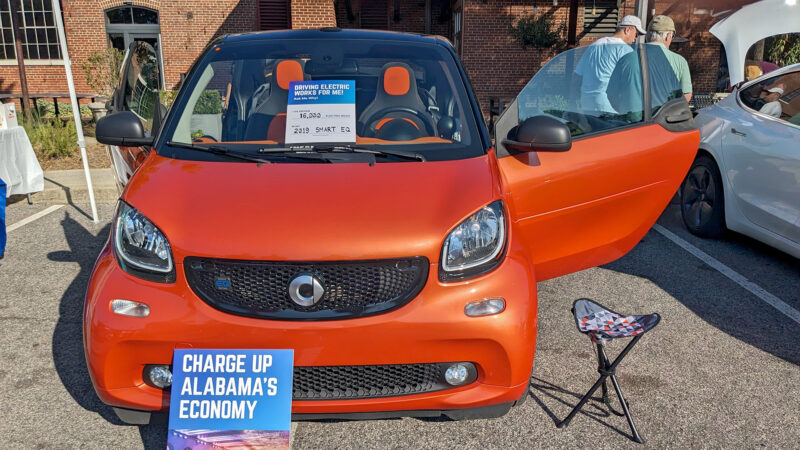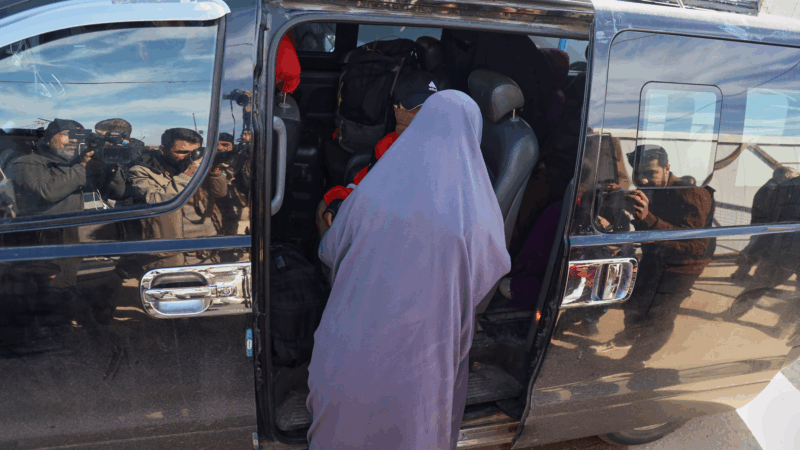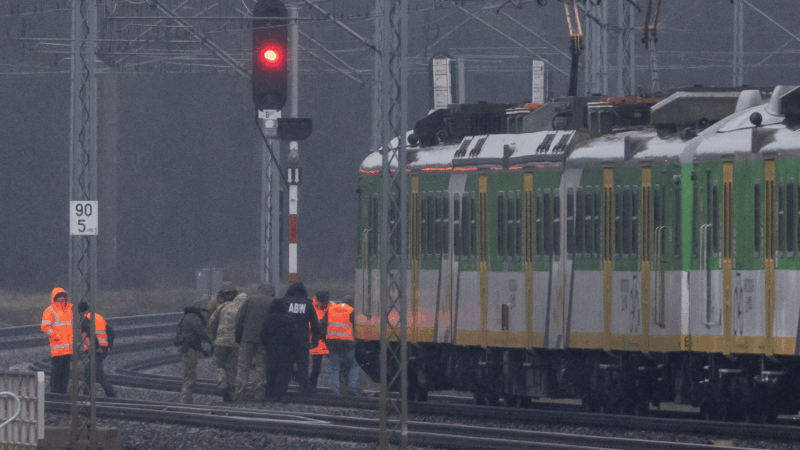The Gulf South looks to ‘charge up’ its economy with electric vehicles
A 2019 Smart EQ fortwo is displayed at the Drive Electric Alabama EV car show in Birmingham, Alabama, Sept. 30, 2023.
Electric vehicles and the South might seem like a strange pairing, but some advocates in Alabama have a pitch beyond saving your wallet and planet: Buy one for the sake of the state’s economy.
That message was on full display at a recent EV car show in Birmingham. A sign leaning against an orange 2019 Smart car read “Charge up Alabama’s economy.” Another propped against Ford’s new all-electric Mustang Mach-E proclaimed “EVs = job fuel.”
While Mississippi and Louisiana have some of the lowest EV adoption rates in the country — with Alabama not far behind — foreign automakers from Toyota to Mercedes have been filling the South with factories for decades, lured in by the lack of unions and abundance of state incentives.
With the global transition to EVs, the Biden Administration is pushing to get those cars built in America — most likely in the South. Georgia has already convinced Hyundai to open an EV plant in the state with a $1.8 billion incentives package.
Yet the EV excitement is also tempered with concerns to make sure the states bring long-lasting jobs, not dangerous ones, and to ensure auto workers already in the South are not left behind.
A bright, equitable future
Though EVs might be Alabama’s future, the vision for them is wrapped in nostalgia. Rural towns have long relied on factories for high-paying jobs — at least compared to what other employers offer.
“Think back on all those movies we watch on television where there was that factory town,” said Michael Oatridge, executive director of Alabama Mobility and Power Center, a public-private partnership at the University of Alabama that is taking a big-picture view on the state’s EV ecosystem. “Those cities and those towns were supported by Industry.”
That also meant rural towns felt the decline in U.S. manufacturing, especially at the turn of the century, more than cities. Southern states are now betting that an EV manufacturing boom can bring with it those lost careers and prosperity — from the massive Georgia-Hyundai plant to battery factories like one Mercedes built in Alabama.
Large assembly and battery plants also require support and parts from smaller factories, likely set up in rural areas and smaller cities like Selma. Oatridge believes bringing these employers to places like Alabama’s Black Belt can provide the investment and good jobs the region lacks.
“We can really start … battling some of the social injustice that’s already occurring,” Oatridge said. “Utilizing this industrial revolution that’s going on in the auto industry to really create some social equity.”

Caution in recruiting
EV manufacturing could bring a new spark to the South’s already buzzing auto industry. But while the auto industry has already delivered high-paying jobs at places like Mercedes, some smaller plants have serious problems.
Those include fines from OSHA for dangerous work conditions and deaths. A Kia and Hyundai parts supplier in eastern Alabama received a citation in 2016 for, “willfully exposing workers to amputations.” A 20-year-old Alabama automotive worker was killed at one supplier that same year, leading to $1.3 million in penalties for the company. A Reuters investigation also found several suppliers in the state relying on child labor as recently as last year.
This is why Oatridge said Alabama must be cautious about who it recruits to the state. His center is also researching to determine what kind of EV battery factories will be sustainable with changing technology. He does not want to recruit a battery plant that ends up closing its doors a decade or two from now.
“Is there new battery technology that will make that obsolete or will it be there forever?” Oatridge said. “We want to make sure when we make a decision to bring a company here that we’ve done our due diligence and that we have every belief that this will be a long-term fit for Alabama.”
Autoworkers have mixed feelings
Oatridge is optimistic Alabama can attract those good, long-lasting EV jobs to the state, but autoworkers’ feelings are mixed.
One battery plant worker in Alabama said he is all in on EVs, believing, like Oatridge, that they will lead to more and better jobs. Other workers are more concerned that the change will leave behind the workers already here.
“When it comes to the legacy workers, the workers that have been there for a while, what are you going to do with us?” said Morris Mock, a technician at the Nissan plant in Canton, Mississippi.
There is little research showing EVs would lead to fewer jobs for current autoworkers. Some research suggests EVs require more labor hours, not less. What is certain is that EVs will require different roles — like attaching batteries to a car’s chassis rather than building engines.
Still, worries over job security with the global EV transition are one of the motivating factors behind the current United Auto Workers strike.
Even though Nissan plans to build electric cars in Canton by 2025, Mock said few workers have been trained for that so far. In an emailed statement, Nissan said it is developing training plans to upskill nearly 2,000 workers at the Mississippi plant.
Mock is not convinced retraining will happen without a union at his plant. He helped lead a union campaign in 2017, though workers ultimately voted against unionizing. Still, he sees growing interest in a union at his plant as his co-workers watch the UAW strike closely.
“Every day, workers are asking me when,” said Mock. “Even the UAW is saying their lines are blowing up. Workers across the South are wanting to organize.”
This story was produced by the Gulf States Newsroom, a collaboration between Mississippi Public Broadcasting, WBHM in Alabama, WWNO and WRKF in Louisiana and NPR.
Following Trump’s lead, Alabama seeks to limit environmental regulations
The Alabama Legislature on Tuesday approved legislation backed by business groups that would prevent state agencies from setting restrictions on pollutants and hazardous substances exceeding those set by the federal government. In areas where no federal standard exists, the state could adopt new rules only if there is a “direct causal link” between exposure to harmful emissions and “manifest bodily harm” to humans.
Trump would like the government he leads to pay him billions
President Trump is asking the federal government for billions of dollars in damages, putting his own Justice Department on the spot and creating an unprecedented ethical morass.
Australia bans a citizen with alleged IS links from returning from Syria
The Australian is among a group of 34 women and children who had planned to fly from Damascus to Australia on Monday but were turned back by Syrian authorities to the Roj detention camp due to procedural problems.
Russia’s hybrid warfare rattles Poland and NATO
Russia is stepping up covert attacks across Europe — rail sabotage, drones, cyber strikes — testing NATO. Polish officials warn "disposable agents" are sowing fear and weaken support for Ukraine.
‘Let them shower in hotels’: Johannesburg Premier faces backlash amid water crisis
In South Africa, as taps run dry in Johannesburg, Africa's richest city, a tone deaf remark by a senior politician there unleashes fury.
Greetings from Cairo, where lights and decorations transform the city during Ramadan
As Ramadan begins, traditional lanterns called fawanees brighten Cairo. They have become a symbol of Ramadan and are an almost-mandatory home decoration for the holy month in Egypt.








